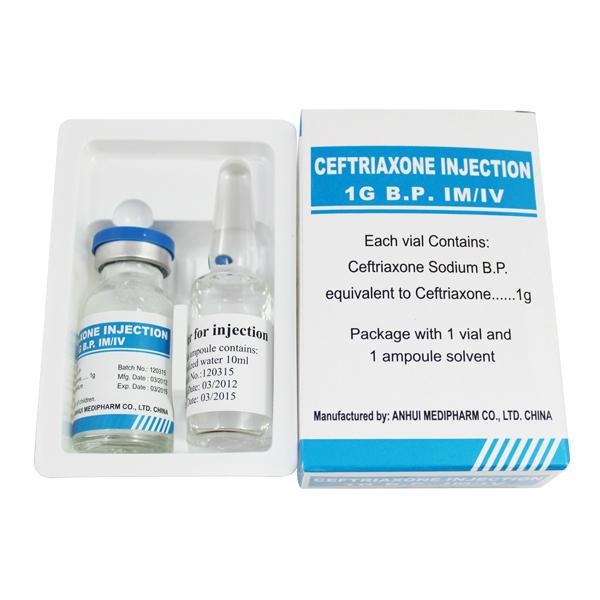Model No.︰-
Brand Name︰Medipharm/OEM
Country of Origin︰China
Unit Price︰-
Minimum Order︰-
Indications:
Ceftriaxone is often used (in combination, but not direct, with macrolide and/or aminoglycoside antibiotics) for the treatment of community-acquired or mild to moderate health care-associated pneumonia. It is also a choice drug for treatment of bacterial meningitis. In pediatrics, it is commonly used in febrile infants between 4 and 8 weeks of age who are admitted to the hospital to exclude sepsis.
Contra-indications:
Ceftriaxone is contraindicated in neonates if they require (or are expected to require) treatment with calcium-containing IV solutions, including continuous calcium-containing infusions such as parenteral nutrition because of the risk of precipitation of ceftriaxone-calcium.
Adverse Effects:
Hypoprothrombinaemia and bleeding are specific side effects. Haemolysis is reported. Biliary sludging is another known though rare adverse effect which occurs primarily in neonates.
Drug Interactions:
Ceftriaxone can interact with a number of medicines. Drugs that can interact with ceftriaxone include, but are not limited to, the following: Warfarin, Probenecid, Sulfinpyrazone, Calcium.
Precautions & Warning:
Before therapy with ceftriaxone for injection is instituted, careful inquiry should be made to determine whether the patient has had previous hypersensitivity reactions to cephalosporins, penicillins or other drugs. This product should be given cautiously to penicillin-sensitive patients. Antibiotics should be administered with caution to any patient who has demonstrated some form of allergy, particularly to drugs. Serious acute hypersensitivity reactions may require the use of subcutaneous epinephrine and other emergency measures.
Use in Pregnancy and Nursing Mothers:
Ceftriaxone is excreted into human milk in small amounts. Ceftriaxone is considered compatible with breast-feeding by the American Academyof Pediatrics. The manufacturer recommends that caution be used when administering ceftriaxone to nursing women.
Treatment/antidote in The Event of Overdose:
In the case of overdosage, drug concentration would not be reduced by hemodialysis or peritoneal dialysis. There is no specific antidote. Treatment of overdosage should be symptomatic.
Storage instructions:
Store below 25℃. Protect from moisture. Keep out of reach of children.
Payment Terms︰ TT, WESTERN UNION



